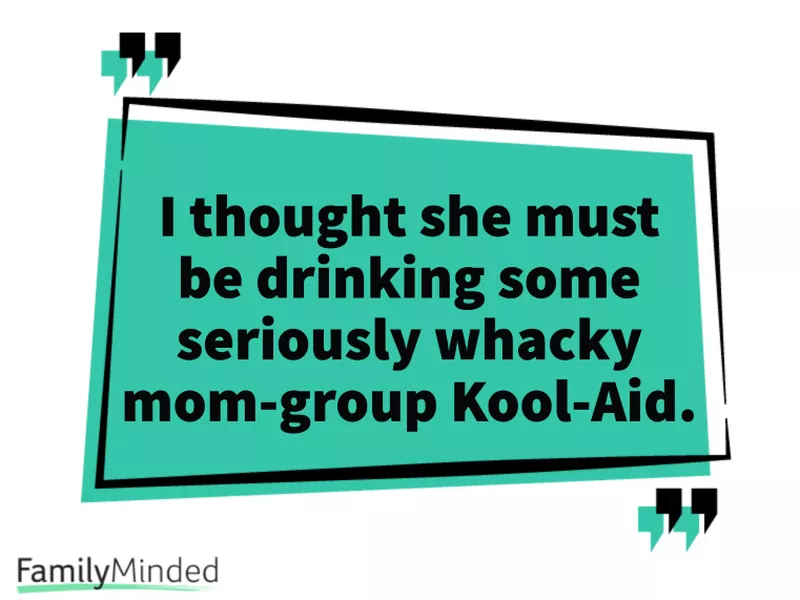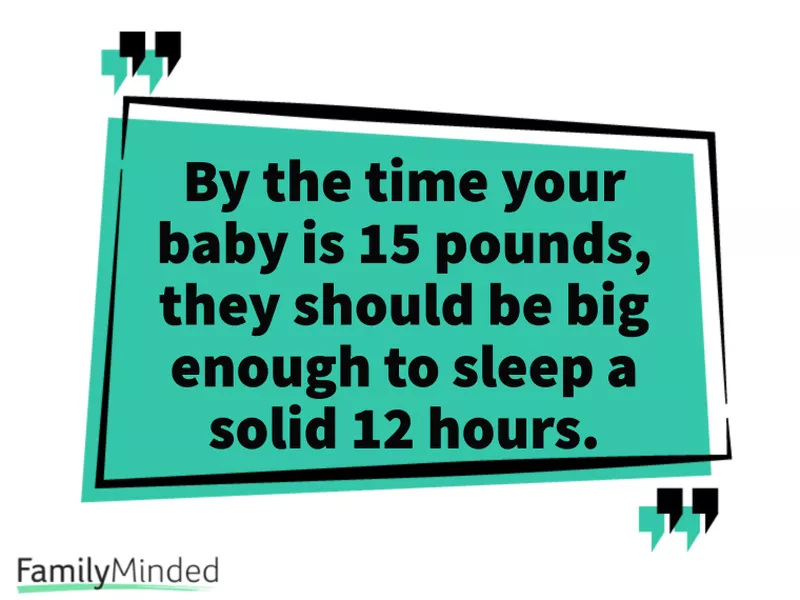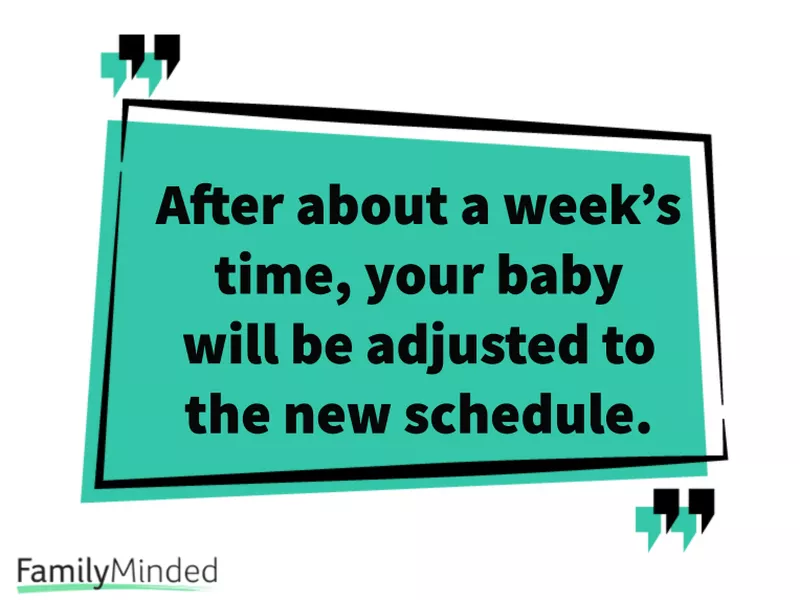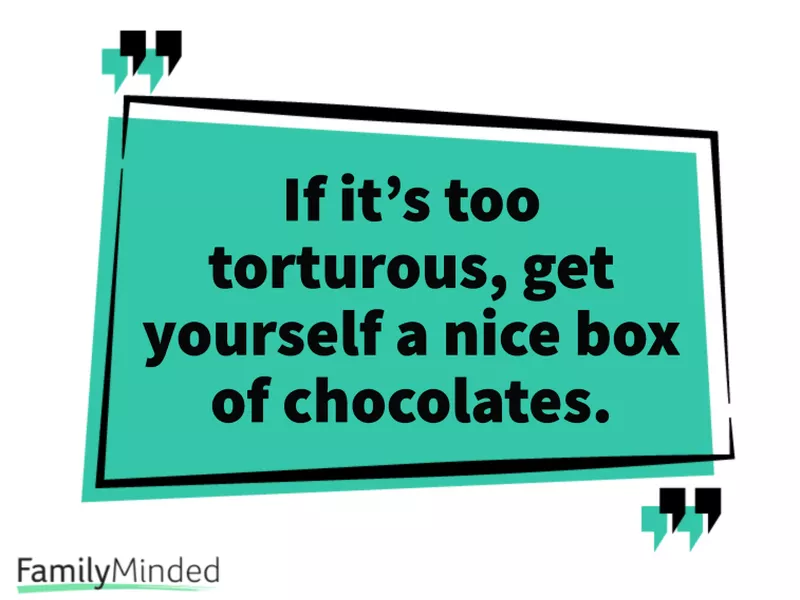I’m going to be honest. Infant sleep training is not for the faint of heart. No one wants to leave their newborn baby crying in a room for minutes (maybe hours) on end.
But do you like sleeping for more than a four-hour stretch? Do you like being able to walk into your own bedroom at night without having to tiptoe around like a burglar? Do you like having dinner without a little monster eyeing your breast?
If your answer to any of these is no, then stop reading. But if your answer is yes, even a sheepish maybe, then you’ve come to the right place. I’m here to tell you that it’s possible to get your baby to sleep through the night before 6 months with a guide on when to start sleep training and how to do it so that you never have to go back to sleepless nights.
Read ‘The Sleepeasy Solution’

Just read it. That’s pretty much my best piece of advice.
I was given the book, “The Sleepeasy Solution” by a friend who slept-trained her child. Now, this is a friend I trust, but when she promised me that my 4-month-old would sleep through the night in less than a week, I thought she must be drinking some seriously whacky mom-group Kool-Aid. Little did I know that I’d become her in less than a week’s time, singing the book’s praises to anyone and everyone who would listen. (I’m not joking; my friends and I call it the parenting bible.)
The nice thing about the book is it gives you a step-by-step, sleep-training method that will get your baby to fall asleep, based on their weight, age and current feeding schedule.
So, When Should I Start Sleep Training?

When I was pregnant, my husband and I read “Bringing Up Bebe.” After all, he’s French, and we thought the American author’s insight into parenting in France would bring both of our worlds together in a neat parenting package. In the book, she claims that French people get their baby to sleep through the night at 2 months. They call it “doing their nights,” and it was the first time I had even thought that this whole baby-sleeping-through-the-night thing could be possible at such a young age.
And it’s no wonder I was so skeptical. The teacher at our hospital’s pregnancy class told us that the American Pediatrics Association recommended parents sleep in the same room as their baby for up to a year (although it now seems to be six months, according to recent reports). To my surprise, a lot of parents I knew were following this rule, too, with some cosleeping with their kids into their toddler years. To be clear, I’m not here to judge or tell other parents what to do with their babies. I just knew that wasn’t going to work for my husband and me.
Enter “The Sleepeasy Solution.” When you’re wondering what age to start sleep training your baby, it’s important to note that it completely depends on your child’s age and weight, mainly the weight. In the book, experts recommend that by the time your baby is 15 pounds (around the five-month mark), they should be big enough and well-fed enough to sleep a solid 12 hours without requiring night feeds. Yes, they’ll still want to eat out of habit, and yes, that means they’ll cry. But that takes you to the custom sleep schedule portion of the book.
How to Create a Sleep Training Plan

Breastfeeding mothers are, of course, wondering about those nighttime feeds, but the book’s schedule has you covered. Over a course of five nights, you’ll set an alarm to wake up an hour earlier than your normal feeding time (say 11 p.m. and 3 a.m.), feed your baby for a set amount of time and then go back to sleep. That way you can slowly wean your baby and your boob from the feedings each night.
Believe it or not, after about a week’s time, your baby will be adjusted to the new schedule.
How to Follow Through With the Sleep Plan

The hardest part of sleep training is starting the process and following through with it. “The Sleepeasy Solution” has you set up a sleep-training station, where your schedule (and maybe a box of tissues) are on hand in case the plan goes awry.
After all, some babies will cry for an entire hour that first night, while others will go to sleep within a few minutes as if they’ve known how to sleep by themselves all along. You should be prepared for your baby to cry at least some those first few nights, but if you can stick it out, you’ll be surprised how quickly they’ll learn to sleep and soothe themselves — and you’ll get to witness your first parent-teaching moment at work!
If it’s too torturous for you to leave the room and put your baby to bed on their own in the middle of the night, you’re not alone. Try rewarding yourself with a nice box of chocolates. Lock yourself in a bathroom with a loud ceiling fan. Or even invest in some noise-canceling headphones.
Trust me. You’ll be happy you did.